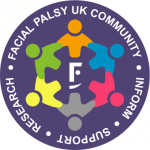<link href="https://cdn.sur.ly/widget-awards/css/surly-badges.min.css" rel="stylesheet">
<div id="surly-badge" class="surly__id_56779743 surly-badge_white-gradient" onclick="if(event.target.nodeName.toLowerCase() != 'a' && event.target.parentElement.nodeName.toLowerCase() != 'a') {window.open('https://sur.ly/i/parentingwithouttears.com/'); return 0;}">
<div class="surly-badge__header">
<h3 class="surly-badge__header-title">Content Safety</h3>
<p class="surly-badge__header-text">HERO</p>
</div>
<div class="surly-badge__tag">
<a class="surly-badge__tag-text" href="https://sur.ly/i/parentingwithouttears.com/"> parentingwithouttears.com </a>
</div>
<div class="surly-badge__footer"> <h3 class="surly-badge__footer-title">Trustworthy</h3> <p class="surly-badge__footer-text">Approved by <a href="https://sur.ly" class="surly-badge__footer-link">Sur.ly</a> </p> </div> <div class="surly-badge__date">2023</div>
</div>
 The charity Facial Palsy UK has launched a petition seeking to raise awareness of the impact of facial palsy in the United Kingdom. In its first three weeks the petition, which runs until August and is totally non-party political, has been signed by over 3,000 people the length and breadth of the UK. Could you sign too? 10,000 signatures are needed to receive a Government response. UK residents can sign the petition here.
The charity Facial Palsy UK has launched a petition seeking to raise awareness of the impact of facial palsy in the United Kingdom. In its first three weeks the petition, which runs until August and is totally non-party political, has been signed by over 3,000 people the length and breadth of the UK. Could you sign too? 10,000 signatures are needed to receive a Government response. UK residents can sign the petition here.
Facial palsy results from damage or absence or impairment of the facial nerve that supplies the muscles of facial function and expression. It affects blinking, closing the eye, eating and drinking, speech, smiling and frowning. Its many causes include disease, injury, stroke, birth trauma, cancer, or neurological condition. The most common is Bell’s palsy, which affects between 12,400 and 24,800 people in the UK each year. Most make a full recovery within two or three months, but roughly 30% do not. In the UK there is a one in 60 lifetime risk of developing Bell’s palsy. People aged 15–45 are more prone to getting it, including in particular women in the last three months of pregnancy.
Why is raising awareness so important?
First, the physical, emotional and psychological consequences of living with facial palsy can be devastating for those affected and their families. Facial difference cannot easily be concealed, and the onset of facial palsy is typically sudden, which can increase the psychological impact, including in pregnancy. Second, early treatment for facial palsy can significantly improve the long-term outcome for those affected. It therefore really matters that people know where they can get support. Facial Palsy UK has a great website and runs support groups, including one for families of children with facial palsy. Third, it can create unnecessary barriers to employment, from attending job interviews to performing certain functions (slurred speech may be harder to understand), to straightforward prejudice about placing people with facial difference in roles such as reception or meeting clients.
A recent survey of 421 people with facial palsy in the UK found that:
Please encourage family, friends and colleagues to sign the petition.